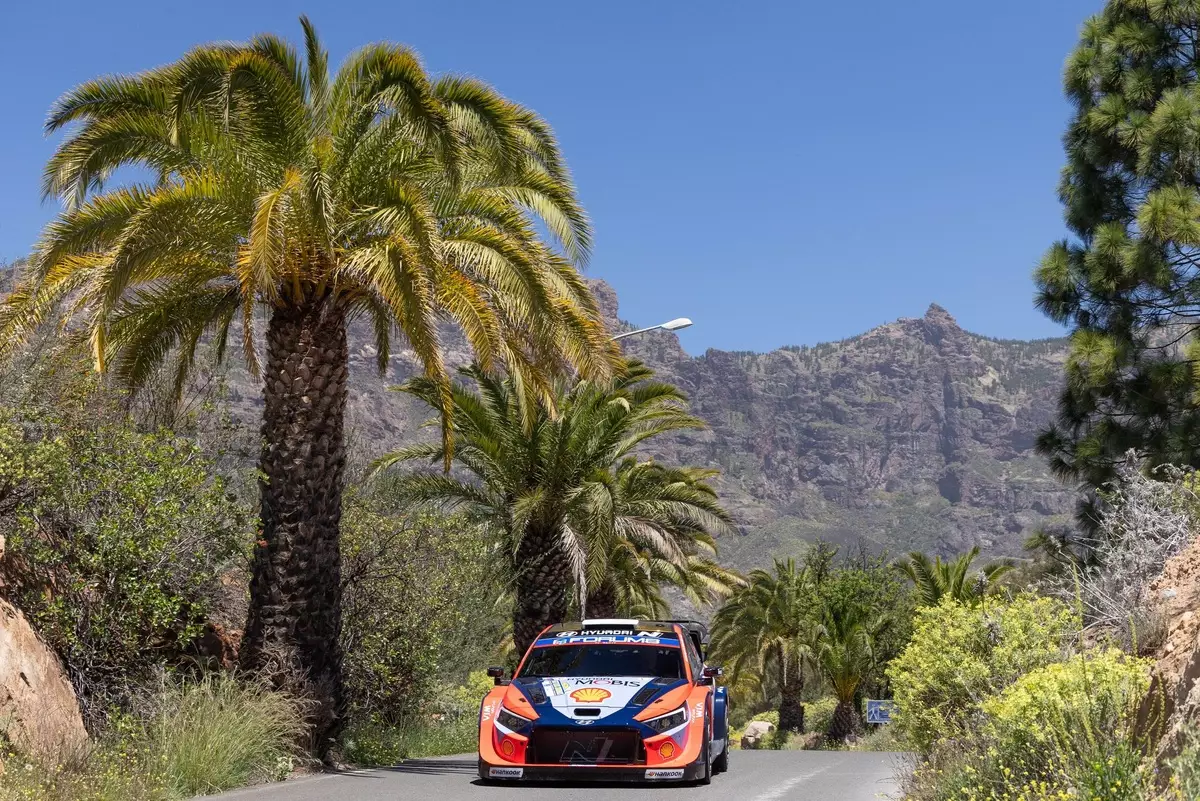The recent performance of Hyundai at the Rally Islas Canarias serves as a grave reminder of the unpredictable nature of motorsport, particularly in the World Rally Championship (WRC). The team arrived with high hopes, buoyed by Thierry Neuville’s impressive showing at the previous Rally Sierra Morena. However, what transpired in the Canary Islands was nothing short of a reality check. With Toyota executing a stunning 1-2-3-4 finish, Hyundai was left grappling with its own deficiencies, questioning not just its strategy but its very preparedness for a pivotal event on the WRC calendar.
In an arena where precision and timing are paramount, Hyundai’s apparent unpreparedness stands out starkly. Ott Tanak’s candid acknowledgment of the team’s shortcomings posits an uncomfortable truth: they simply were not ready. While Tanak credited Toyota’s strength and preparation, the underlying implication is that Hyundai must confront its inadequacies head-on. The canyons and turns of the Canary Islands were unforgiving, exposing gaps in Hyundai’s performance and strategy.
Technical Turmoil
Central to Hyundai’s struggle was the handling of their i20 N Rally1 cars, which, according to team reports, failed to deliver the expected performance on the intricacies of asphalt. The choice of Hankook hard compound tires, crucial during the rally, became a liability as the setup of the vehicles did not harmonize with the specific demands of the course. A significant point of contention was the pre-event differential selection, which locked the team into decisions they could not readily reverse due to regulatory seals on components.
As the disappointing stages unfolded, Hyundai’s strategy shifted from competition to data collection. This sudden pivot highlights the broader implications of the rally for the team. Rather than fighting for podiums, Saturday and Sunday morphed into an unplanned test for learning and tweaking their performance. The car’s fundamental issues were laid bare, suggesting much deeper problems demanding solutions that may not be immediately apparent or executable.
Lessons from the Asphalt
Despite the grim outlook post-event, there’s a flicker of optimism from within Hyundai’s camp. Adrien Fourmaux, who outpaced his teammates despite the general malaise, expressed his frustration while hinting at potential advancements moving forward. His assertion that the deficiencies were “rally-specific” raises the question of adaptability. The landscape of the WRC is always changing, and each event presents new challenges that test the mettle of teams. For Fourmaux, the focus now turns toward improvements that could be catalysts for resilience in future rallies.
Tanak’s retrospective insights encouraged reflection within the team about the core challenges of competition versus camaraderie: “It’s about quick iterations and learning. What we face now is an opportunity for reflection and enhancement, not just a setback.” The unflinching honesty exhibited by team members in the aftermath of such a significant performance dip indicates a strong desire to learn from these missteps, demonstrating that every defeat can lay the groundwork for future success.
The Road Ahead: Adjustment and Recalibration
Looking towards the Central European Rally in October, there is significant pressure for Hyundai to rebalance its priorities and take corrective action. One homologation joker remains in their arsenal, alluding to potential modifications that could recalibrate their performance standards. This hint at future innovation suggests that while the team is grounded in its present struggles, it is capable of transformative changes.
Hyundai must prioritize an overhaul, not just of its vehicles but also of its approach to challenges. The pathway to transformation will likely require agility, creativity, and a unified vision among drivers and engineers alike. Competitors like Toyota are not simply barriers to overcome; they are benchmarks that stimulate Hyundai to elevate its performance levels.
In closing this reflection on Hyundai’s trials, it’s significant to note that while setbacks are palpable, the essence of motorsport thrives on resilience, adaptation, and relentless pursuit of excellence. A turbulent rally experience can ignite the spark for vital changes, and if Hyundai channels its lessons learned into actionable strategies, the team may very well rise stronger and swifter than before.


Leave a Reply